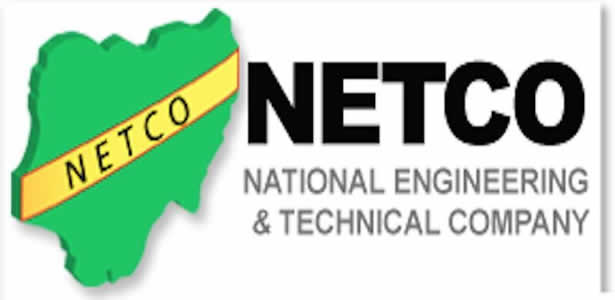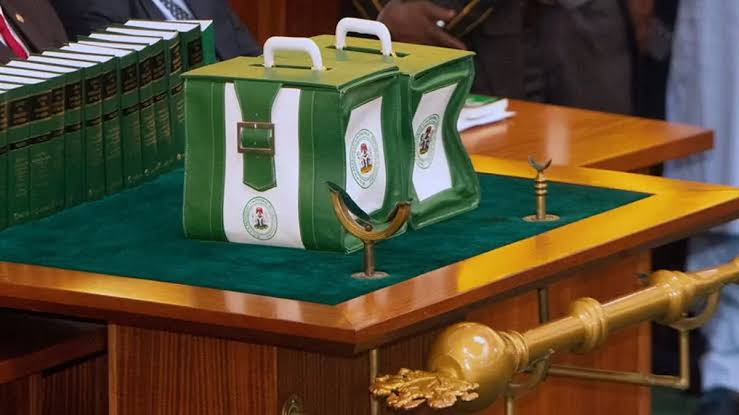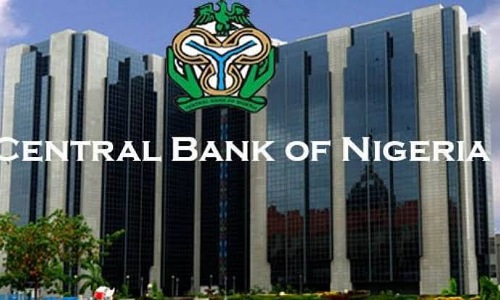Business
NNPC’s Engineering subsidiary, NETCO, records N6.758billion profit

Yemie ADEOYE
ABUJA-THE National Engineering and Technical Company of Nigeria (NETCO), the engineering subsidiary of the Nigerian National Petroleum Corporation, on Tuesday posted a profit before tax of N6.75 billion for the year ended 31st December 2018 representing an increase of 107 percent over the N3.26 billion recorded in 2017.
Profit after tax stood at N4.597billion compared to N2.483billion recorded in 2017.
This was disclosed in release by the Group General Manager, Group Public Affairs Division, NNPC, Mr. Ndu Ughamadu.
Speaking at the Annual General Meeting of the company in Abuja, Mallam Bello Rabiu, Chief Operating Officer, Upstream of the NNPC who is also the Chairman of NETCO Board of Directors, said the quantum leap in performance is attributable to two major projects undertaken within the period under review.
Rabiu listed the projects to include the Mobil Producing Nigeria Limited Major Integrity Projects (MIPs) EPC m2 and the Nigerian Petroleum Development Company (NPDC) FPSO Mystras Operations & Maintenance Contract.
He added that the path to increased profitability was made smooth by the enforcement of cost-reduction measures put in place during the period and driven by the doggedness of Management and staff.
“The success was also made possible through the sustained efforts on the part of the company to leverage on the continued strong support of the Shareholders and the Group Managing Director of the NNPC in particular which led to the award of some big ticket projects,” he said.
Rabiu added that NETCO ensured that these projects were delivered on time, within budget and without compromising quality in service delivery.
Also speaking at the event, the Managing Director of the Company, Engr. Mustapha Yakubu, said that NETCO was focused on attaining the desired level of competitiveness to place it at par with other global companies in the sector.
Business
2025: Nigerian States Fail To Achieve 60% Budget Execution In 2024

A recent review of budget performance across Nigerian states has revealed that none managed to exceed a 60% execution rate between January and September 2024.
The underwhelming performance raises concerns about the states’ readiness to handle the ambitious budgets they have planned for the 2025 fiscal year.
From Katsina to Akwa Ibom, states struggled to meet their budget targets, with execution rates ranging from 26.9% to 55.1%.
The review highlights inefficiencies in fiscal planning, low internal revenue generation, and a reliance on federal allocations and borrowing.
READ ALSO: Archbishop Martins Champions Clamour For Better Life For Nigerians
Katsina State: Allocated N481.7 billion for 2024 but spent just N216.4 billion, representing 44.9% budget performance.
The state recorded an internally generated revenue (IGR) of N29.9 billion.
Jigawa State: With a budget of N383.5 billion, the state spent N174.8 billion (45.6%) and generated N18.4 billion internally.
Niger State: Budget execution stood at 30.4%, with N252.2 billion spent out of N829.4 billion. IGR was N29.2 billion, representing just 3.5% of the budget.
Abia State: Achieved 30.3% performance, spending N171.8 billion of its N567.2 billion budget, with IGR at N22.1 billion.
Anambra State: Spent N132.5 billion out of N410.3 billion (32.3%) and generated N28.2 billion internally.
Ondo State: Executed 52.3% of its N395.2 billion budget, spending N206.6 billion, with IGR at N24.4 billion.
Oyo State: Spent N210.9 billion out of N438.4 billion (48.1%), recording the highest IGR among reviewed states at N45.7 billion.
Bauchi State: Achieved 51.4% budget performance, spending N202.9 billion of its N394.8 billion allocation, while generating N15.9 billion internally.
Zamfara State: Executed 34.2% of its N426.5 billion budget, spending N145.8 billion, with IGR at N18.4 billion.
Adamawa State: Spent N154.8 billion out of N281.1 billion (55.1%) but generated only N9.1 billion internally.
Akwa Ibom: Recorded the lowest budget performance at 26.9%, spending N228.7 billion of its N849.9 billion budget. IGR stood at N41.4 billion.
Niger State’s fiscal performance stands out as a worrying case. Despite budgeting N829.4 billion for 2024, the state spent only N252.2 billion, relying heavily on federal allocations (N182 billion) and loans (N79 billion, covering 31.3% of expenditures). The state generated just N29.2 billion internally.
As Niger State plans to increase its budget to N1.5 trillion in 2025—a 48.3% rise from 2024—questions are being raised about its ability to finance such a massive appropriation.
Governor Mohammed Umaru Bago recently defended the state’s financial approach, claiming a 68.88% budget performance for 2024.
However, analysts have pointed out discrepancies in the state’s fiscal records.
“The numbers don’t add up,” said one analyst. “If Niger State relied on internally generated revenue alone, it would have achieved only 3.5% of its 2024 budget. The reliance on loans and federal allocations is unsustainable.”
The state’s fiscal challenges are not new. In 2023, Niger budgeted N473 billion but spent only N190.9 billion (40.3%).
It generated N18 billion internally, received N92.6 billion from the federation account, and borrowed N90 billion to bridge the gap.
The inability of states to execute their 2024 budgets effectively has raised doubts about their capacity to manage even larger budgets in 2025.
Fiscal experts are calling for a reassessment of budget planning and implementation processes to avoid deepening financial crises.
“There’s an urgent need for states to improve revenue generation and reduce dependence on loans,” said another expert. “Without these measures, achieving fiscal sustainability will remain a mirage.”
Business
CSOs Urge Further Reduction Of Pump Prices Of Petrol
Following the marginal reduction of the pump prices of premium motor spirit (PMS) by the Dangote Petroleum Refinery and the Nigerian National Petrol Company Limited (NNPC Ltd), civil society groups have reacted by calling for further downward review.
Recall that the Dangote Petroleum Refinery had announced a partnership with MRS Oil and Gas to offer petrol at N935 per litre at retail outlets, while it reviewed the ex-depot price from N970 to N899.50 per litre.
The move, saw state oil major, the Nigeria National Petroleum Company peg its retail prices at N965/litre.
ALSO READ: Dangote Partnership: MRS Urges Nigerians To Insist On N935/Litre Petrol Price Nationwide
However, the civil society groups are of the opinion that the price reduction, fall short of expectations.
According to the Chairman, Centre for Accountability and Open Leadership, Debo Adeniran, the reduced price of N935/litre was still expensive and unsatisfactory.
He pointed out that petrol was just one of the products coming out of crude and that both government and private business could still give out free petrol to citizens while making huge profits from the other products.
In his words, “Well, we believe that if NNPC and the private sector actually give out PMS for free, they will still not run their business at a loss, because the other derivatives of petroleum products can still serve them, and can still make them to break even. So, even at that N900 and something, it’s still expensive.
“Dangote has kind of mooted the idea that it could drop to as low as N650. And if he has mulled this, then it means that it is the state, it is the NNPC that will have been the clog in the wheel of such progress. And you know also that we expected that fuel prices, especially PMS prices, will drop below N200 when Dangote was expected to come on stream.
“So, it’s unfortunate that we are still talking about over N900 and they want us to jump up and rejoice for that. That is not satisfactory. They should just let us see the breakdown of their production cost and why it’s still there. I mean, there are countries like Libya under Gaddafi that gave out PMS for free and they didn’t run anything at any loss. So, I believe that it can still go further down.”
On his part, the Executive Director of the Civil Society Legislative Advocacy Centre, Ibrahim Rafsanjani, commended the reduction of fuel prices by the NNPC and Dangote, but said the government could still reduce the price.
“Dangote’s own is about N899 or something like that. Well first and foremost, we are happy that there is a little reduction in the prices. But also based on analysis and based on facts and evidences, we believe that it is possible for the Nigerian government to further reduce the prices.
“Because if a private company can reduce the price and it still makes profit, we wonder why government-owned enterprises cannot really pity its citizens,” he said.
Business
Non-Oil Sector Fuels Nigeria’s Q3 2024 GDP Growth, Says CBN

The Central Bank of Nigeria (CBN) has announced a significant growth in the country’s economy, with a 3.46% increase in gross domestic product (GDP) in the third quarter of 2024.
This marks the third consecutive quarter of expansion, up from 3.19% in Q2 2024 and 2.54% in Q3 2023.
According to the newly published Q3 economic report, Nigeria’s GDP output rose to ₦20.115 trillion, reflecting a notable improvement from ₦18.285 trillion in the previous quarter.
READ MORE: Tragic Funfair Crush In Ibadan Claims Children&’s Lives
The CBN attributed this growth primarily to the performance of the non-oil sector, which grew by 3.37% compared to 2.80% in Q2 2024.
The report highlighted transportation, crop production, and other sub-sectors such as financial & insurance services, information & communication, trade, and real estate as major contributors to the expansion.
The non-oil sector accounted for 3.18 percentage points of the total growth rate.
“The expansion of the non-oil sector was driven by the performance of the financial & insurance, information & communication, crop production, trade, transportation & storage, and real estate sub-sectors,” the report stated.
Despite the economic growth, challenges persist. Inflation, particularly in food prices, remains a significant concern, standing at 39.93% as of November 2024.
Rising food and energy costs have also impacted transportation expenses, with intercity bus fares increasing by 20.23% year-on-year to ₦7,117.17 in July 2024, according to the National Bureau of Statistics.
Furthermore, the cost of petroleum, now exceeding ₦1,000 per litre, has driven up logistics and transportation expenses, adding pressure to households and businesses alike.
The CBN acknowledged these challenges, noting that the growth was achieved despite headwinds such as high inflation and rising operational costs.
Enhanced security measures in the Niger Delta have boosted domestic crude oil production, while restrictive monetary policies have helped moderate inflation in some areas.
“The growth recorded in the country is a result of continued efforts to improve the business environment, streamline cumbersome business processes, and deepen the quality of business infrastructure,” the CBN noted.
However, the report comes amid concerns over businesses exiting Nigeria due to persistent economic challenges.











